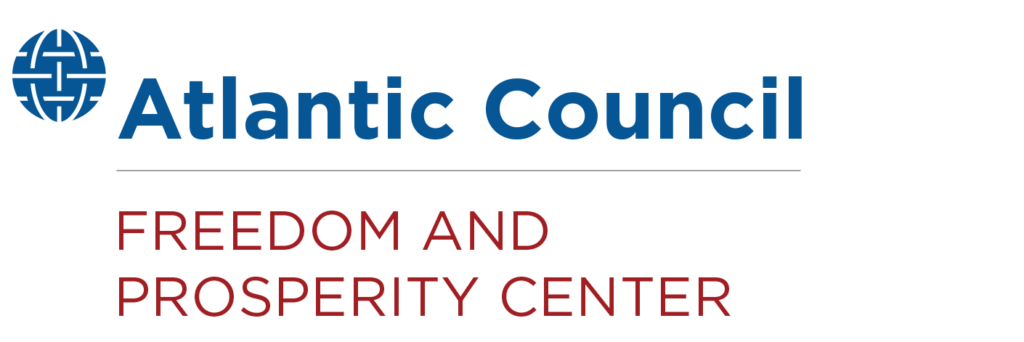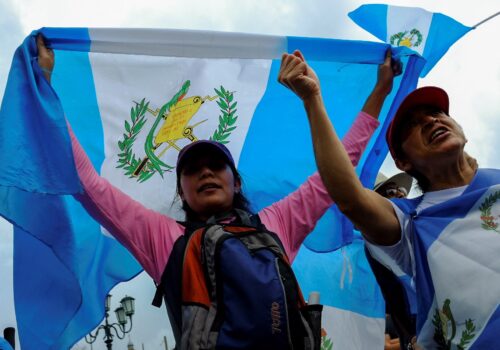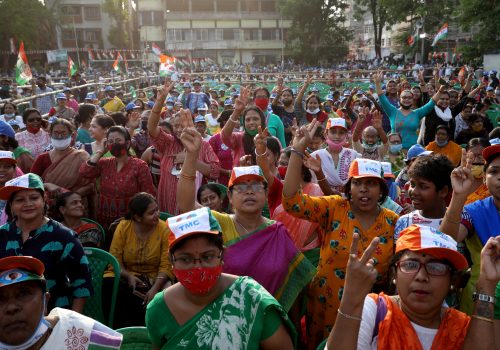From Tunis to Baghdad: Can platform-based politics take root?
This paper is the fifth in the Freedom and Prosperity Center’s “State of the Parties” series analyzing the strength of multi-party systems in different regions of the world.
The organization of political parties has served multiple distinct roles in the Middle East and North Africa (MENA). In many cases, regimes use them to create a light veneer of democratic legitimacy for authoritarianism; in other cases, parties exist to represent one identity group or are centered around a singular individual. In rare cases, but with a few successful examples, parties exist to represent an ideology. Rarer still, but key to the future democratic success of the region, are true platform-based parties. Vacuums of political leadership have developed due to the limited role parties play in shaping governance, representation, and public policy. In a rapidly changing region, the opportunity for effective, issues-based parties has never been more evident. Iran’s proxies in the region have been significantly weakened and the “Axis of Resistance” dismantled, presenting openings for new political leadership to emerge.
Political parties are not yet poised to meet the moment. In much of the region, long histories of implicit and explicit bans and one-party dominance have left political parties weak, unpopular, and ineffective. Extended periods of suppression and restriction—such as Jordan’s thirty-year party ban, Iraq’s decades of one-party rule under Saddam Hussein, and Tunisia’s twenty-three years of party bans during the Ben Ali era—have resulted in political parties that lack both organizational capacity and broad public appeal. Rather, they are fragmented, ideologically vague, and centered around individuals rather than coherent platforms.
The proliferation of political parties—more than 220 are currently registered in Tunisia, for example—has further undermined any sense of clear policy platforms and the ability to differentiate one party from another. Rather than reforming or uniting under existing frameworks, disillusioned members frequently break away to form new parties, stymieing coalition-building and the development of rooted, comprehensive party ideologies.
Disillusionment with traditional parties has led citizens to favor actors perceived as more directly serving their interests, such as Hezbollah—which positions itself as a resistance force against Israel—or Muslim Brotherhood-affiliated parties, which have gained trust through their provision of essential social services in Egypt, Jordan, and elsewhere. In an era defined by youth-led movements, digital activism, and persistent calls for democratization, these parties stand at a crossroads. Whether they act as agents of change or instruments of entrenched power remains a central question, shaping not only the future of governance within individual nations but also the trajectory of regional stability and development.
Related content
Explore the series
Explore the program

The Freedom and Prosperity Center aims to increase the prosperity of the poor and marginalized in developing countries and to explore the nature of the relationship between freedom and prosperity in both developing and developed nations.
Image: Demonstrators carry Lebanese flags during an anti-government protest in the mainly Druze town of Hasbaya, Lebanon October 25, 2019. REUTERS/Aziz Taher




For the latest updates, follow us on social media with the #StateOfTheParties